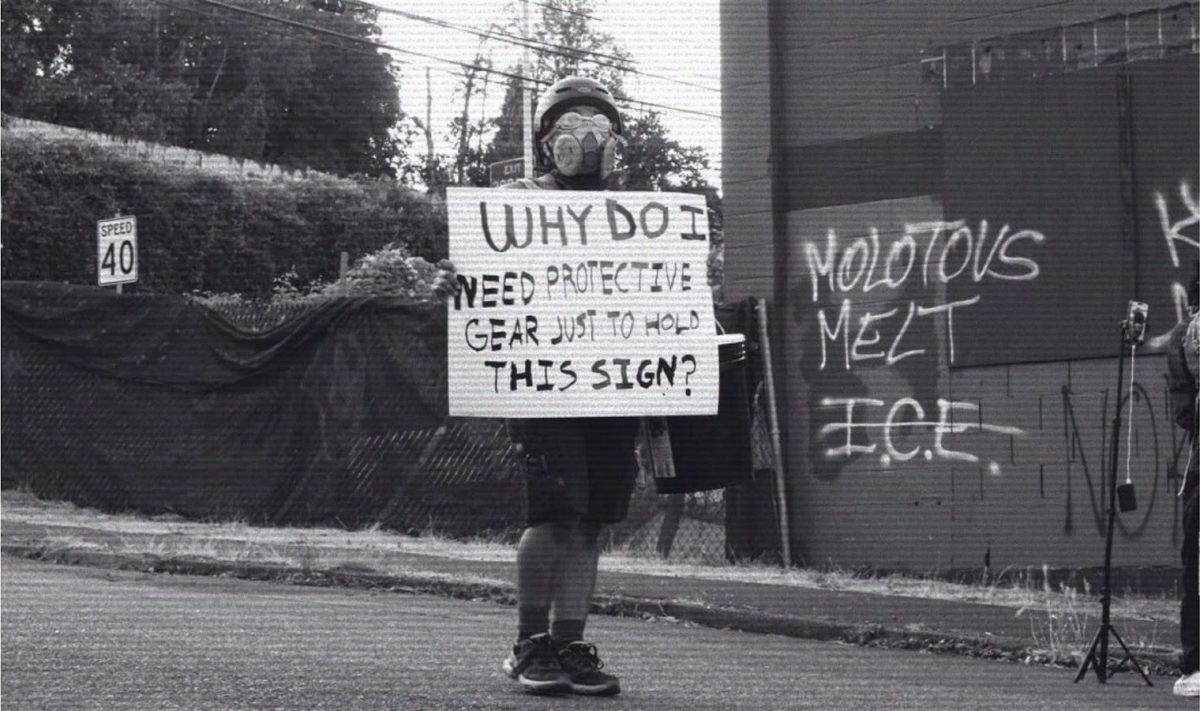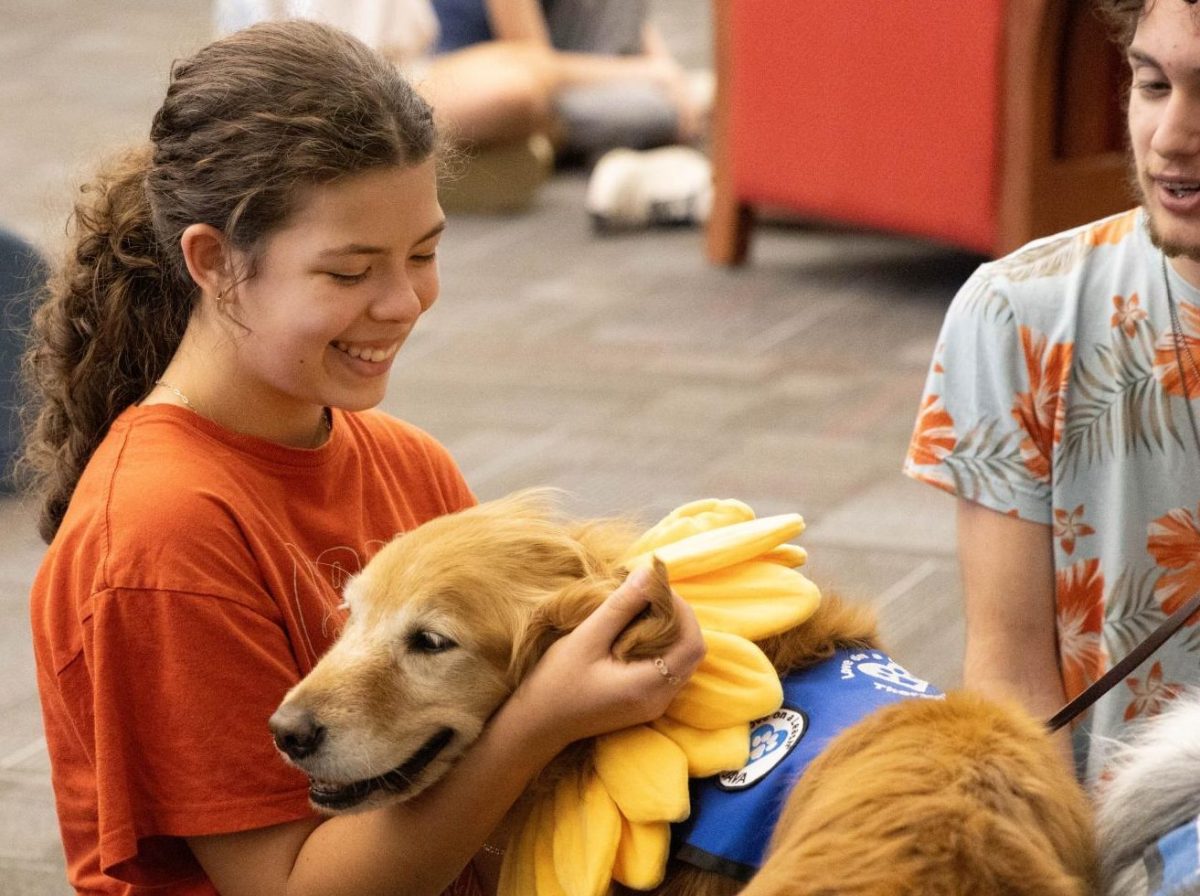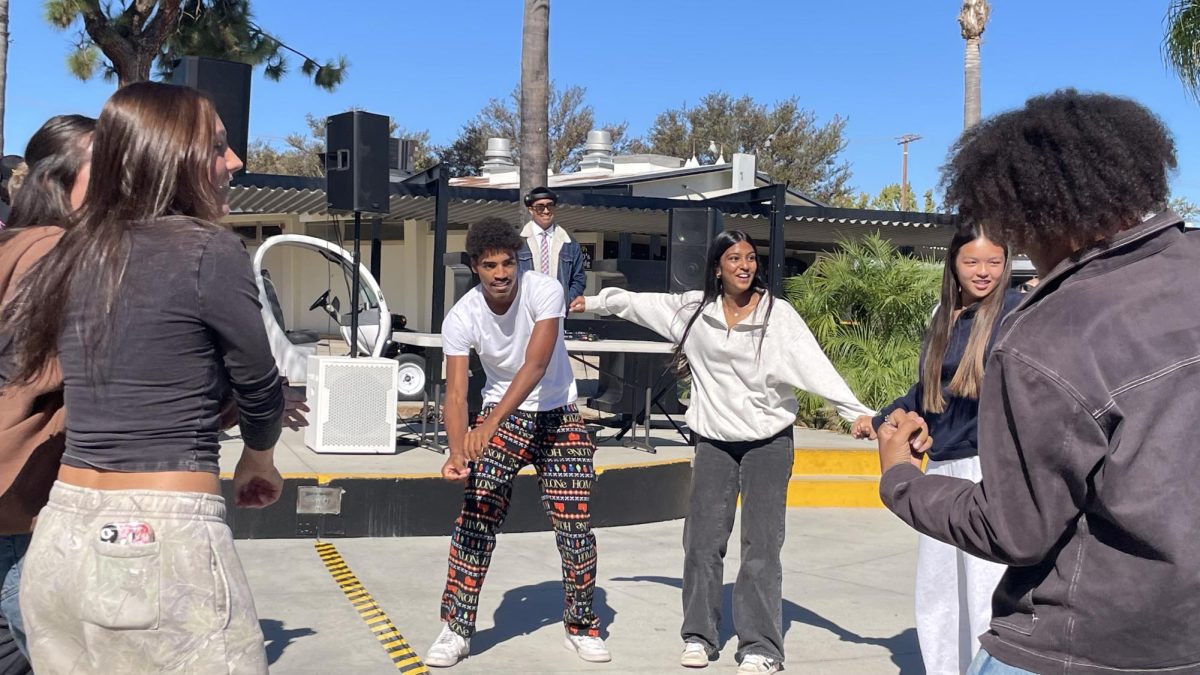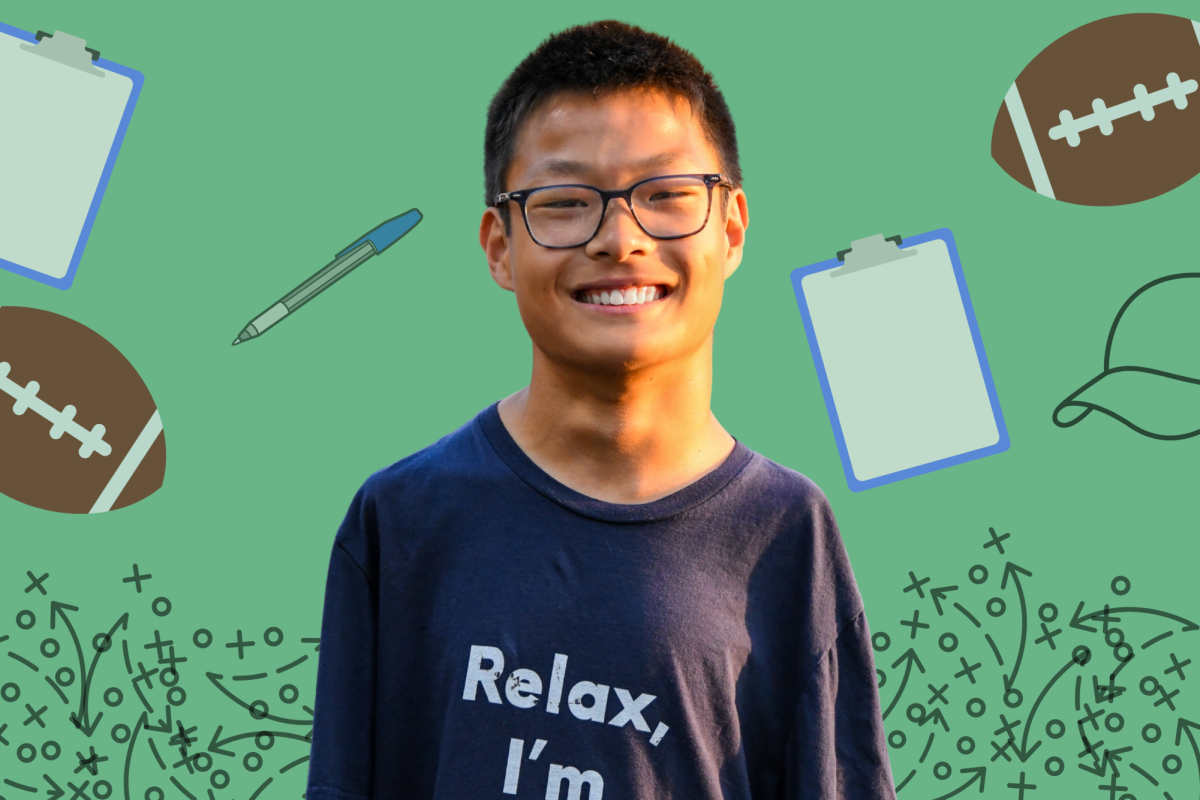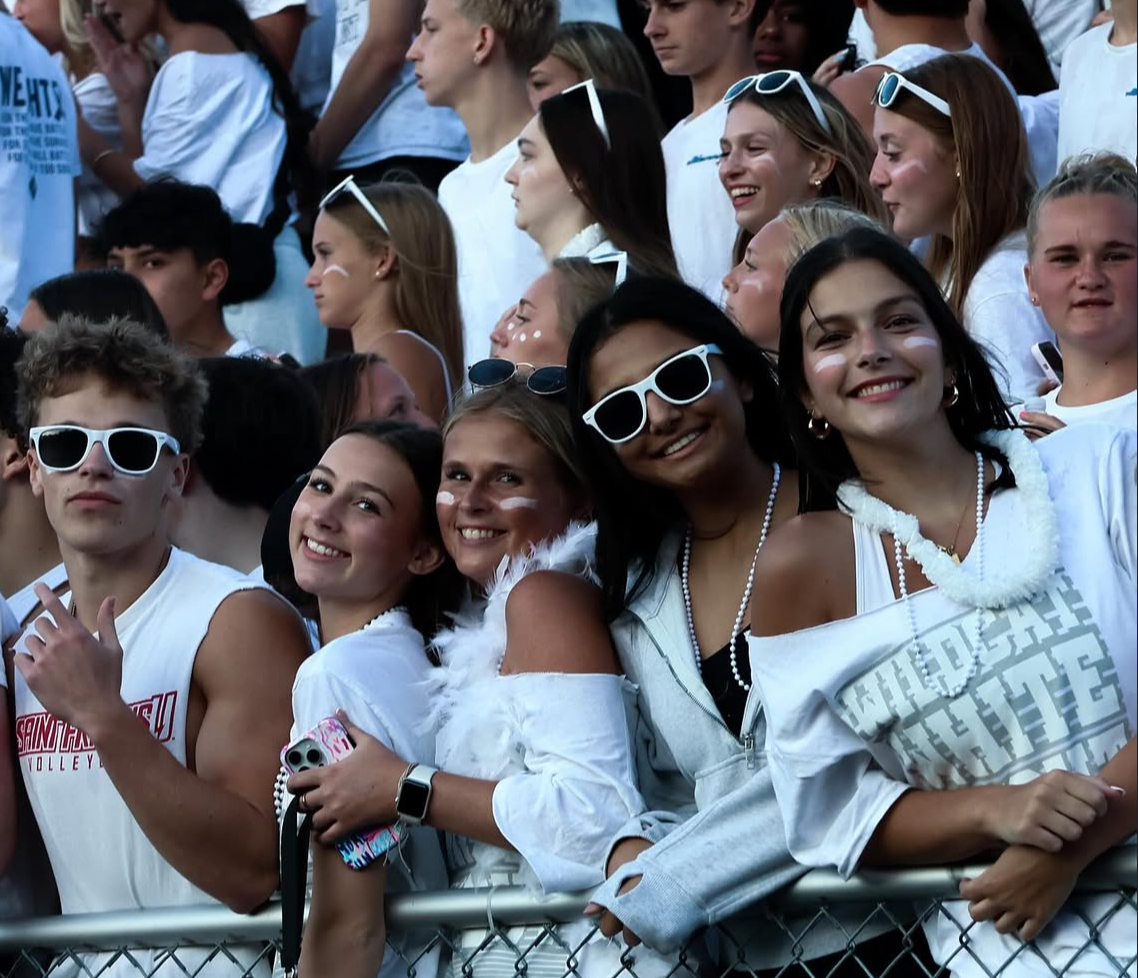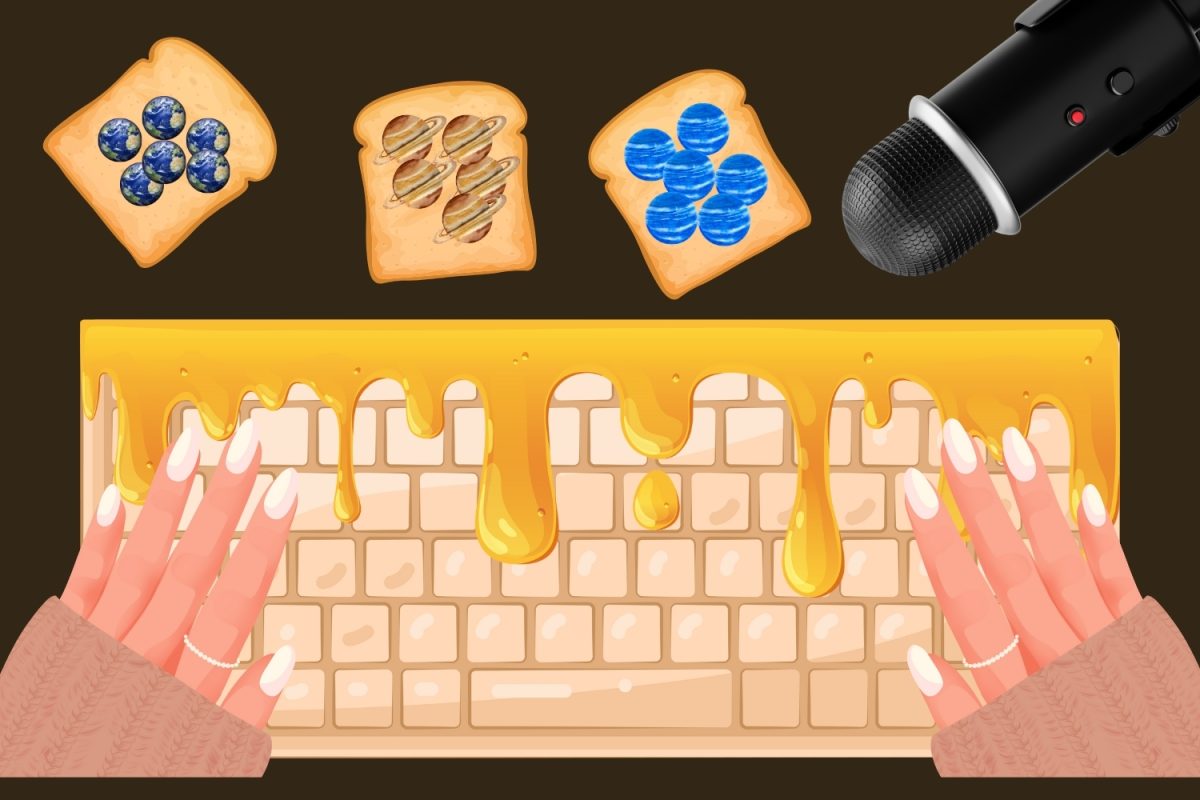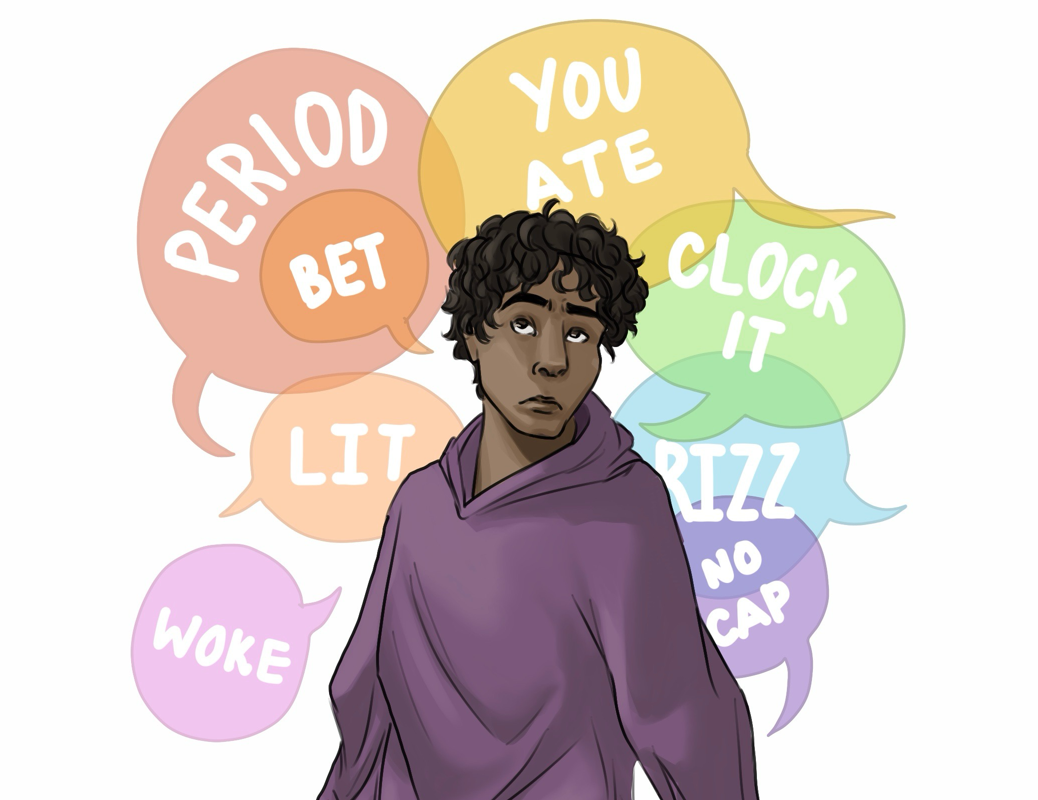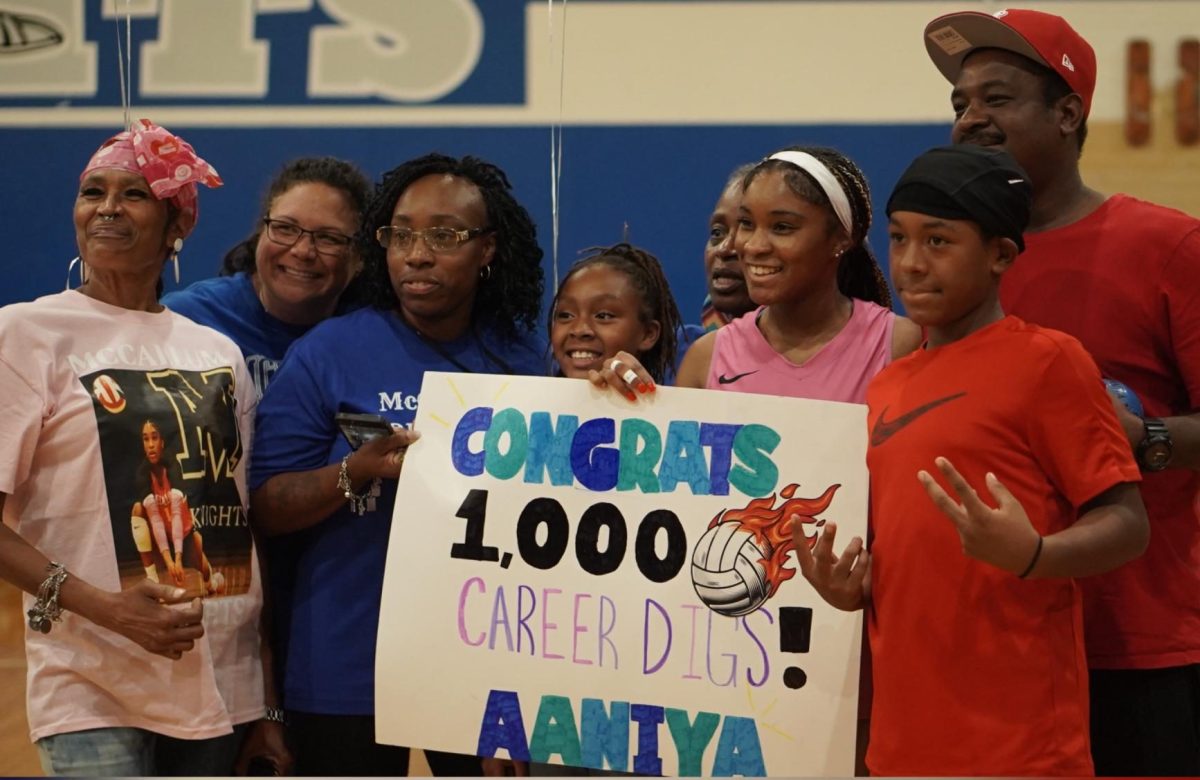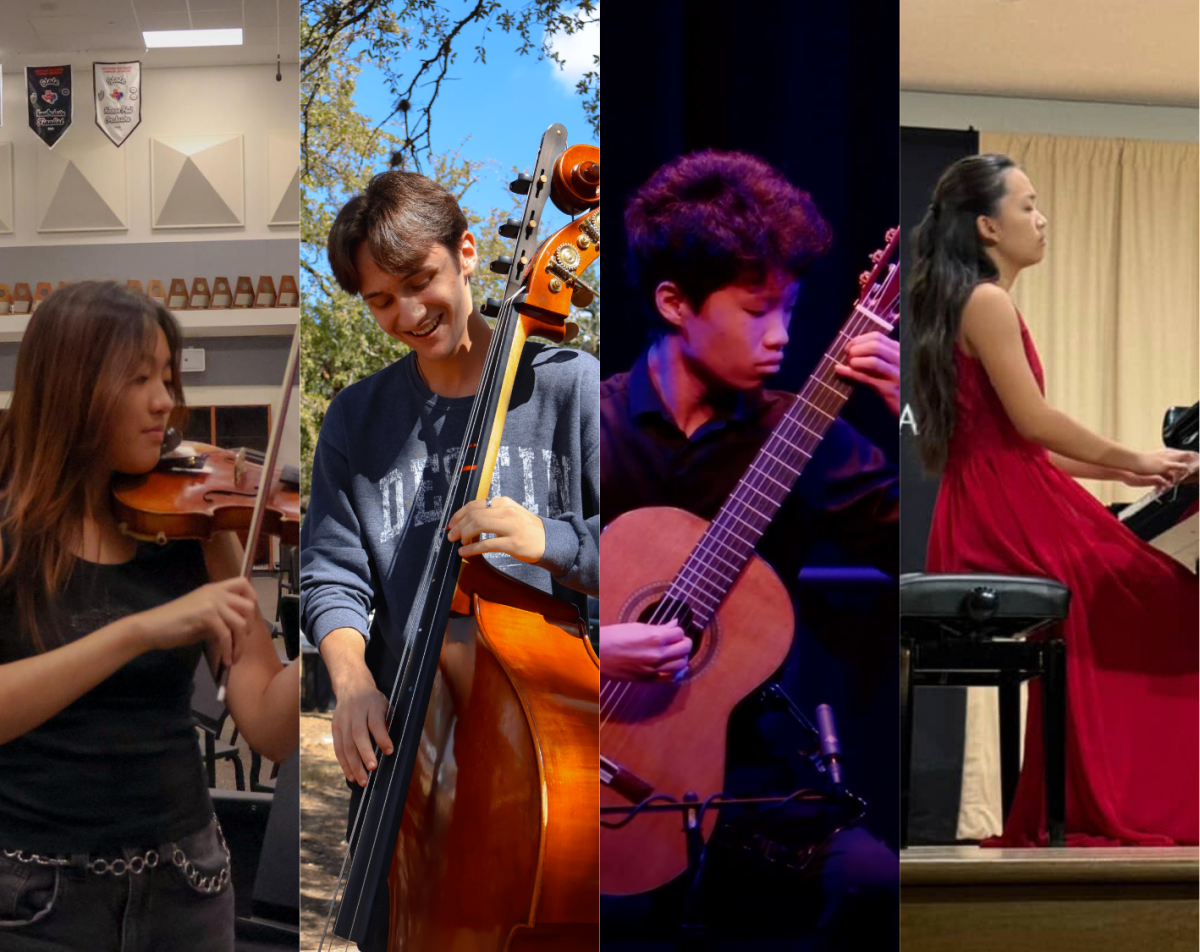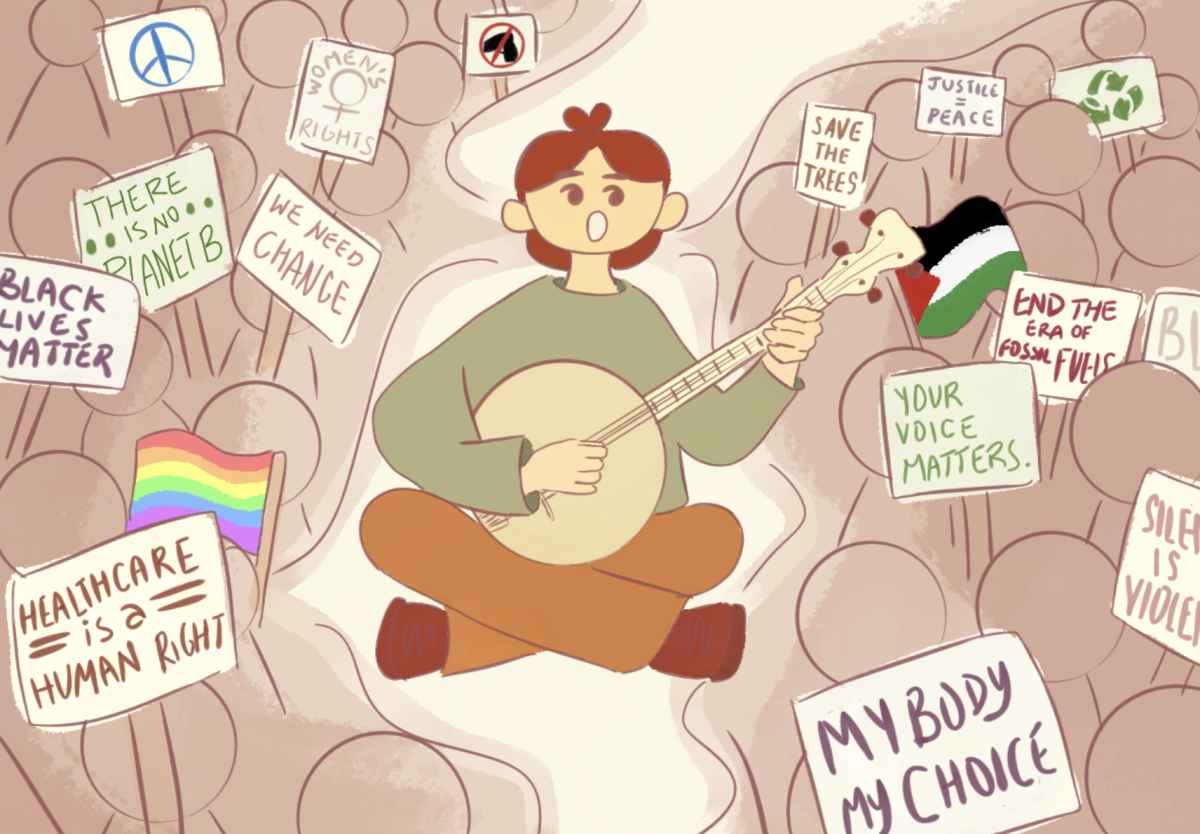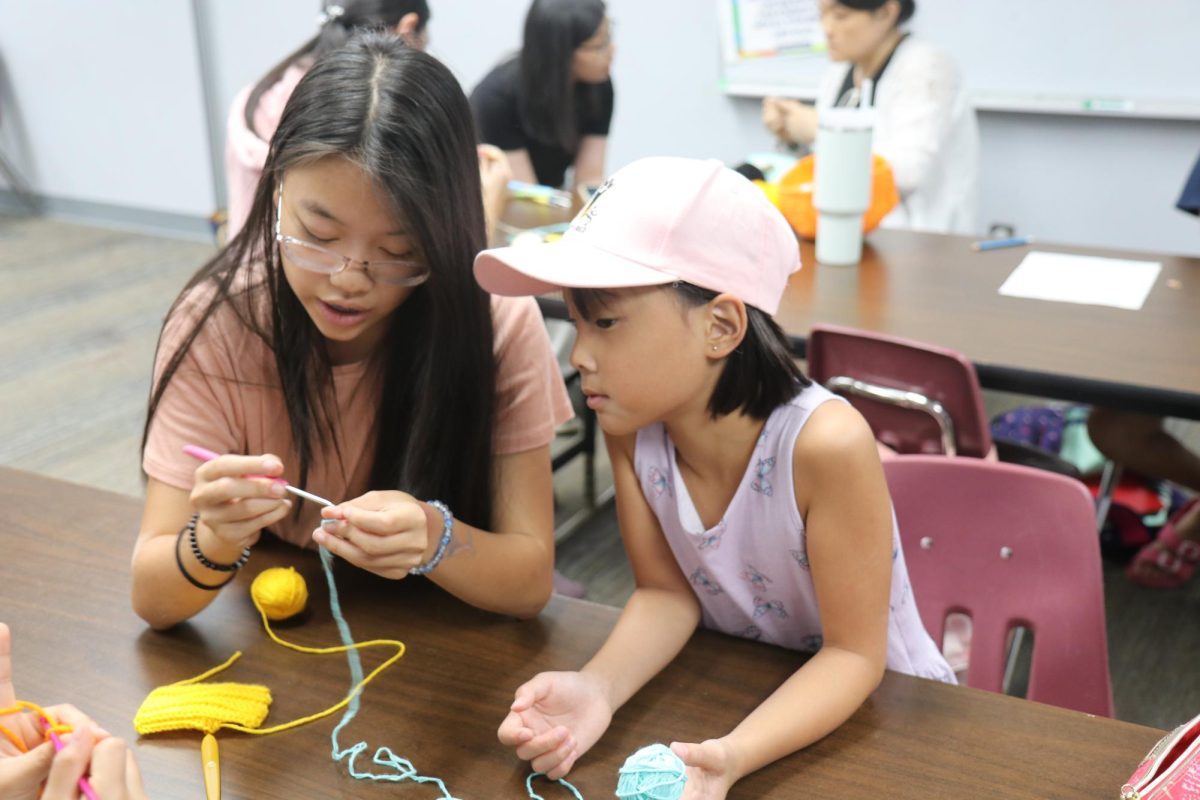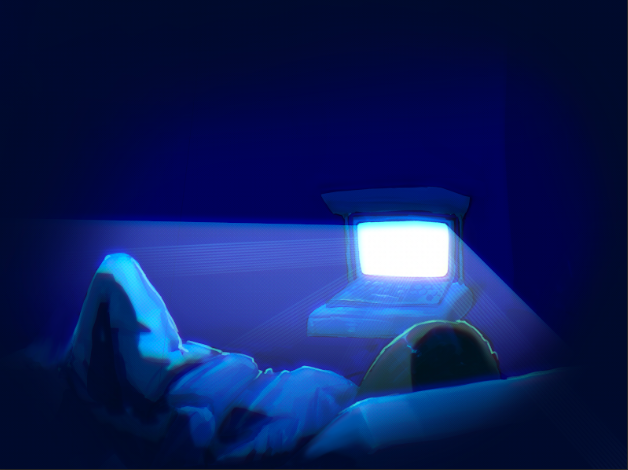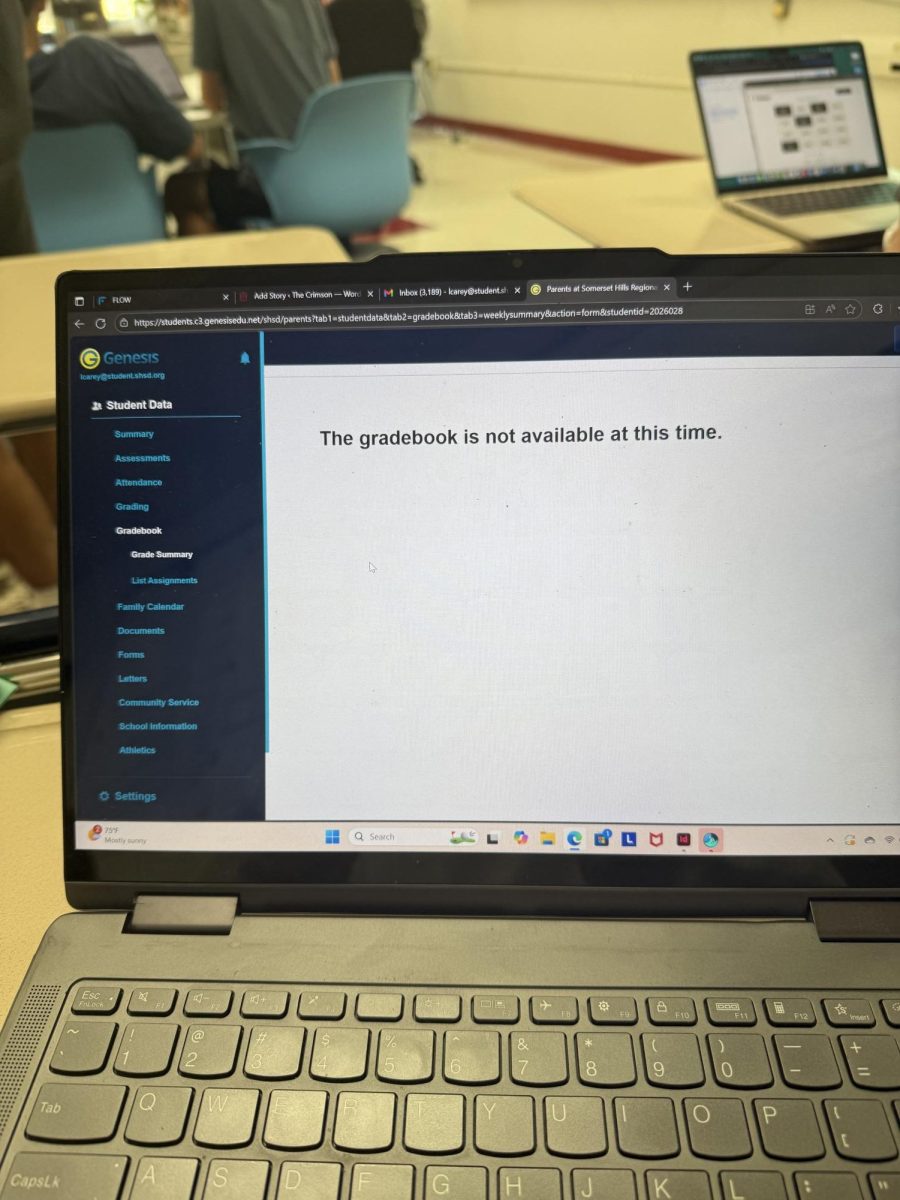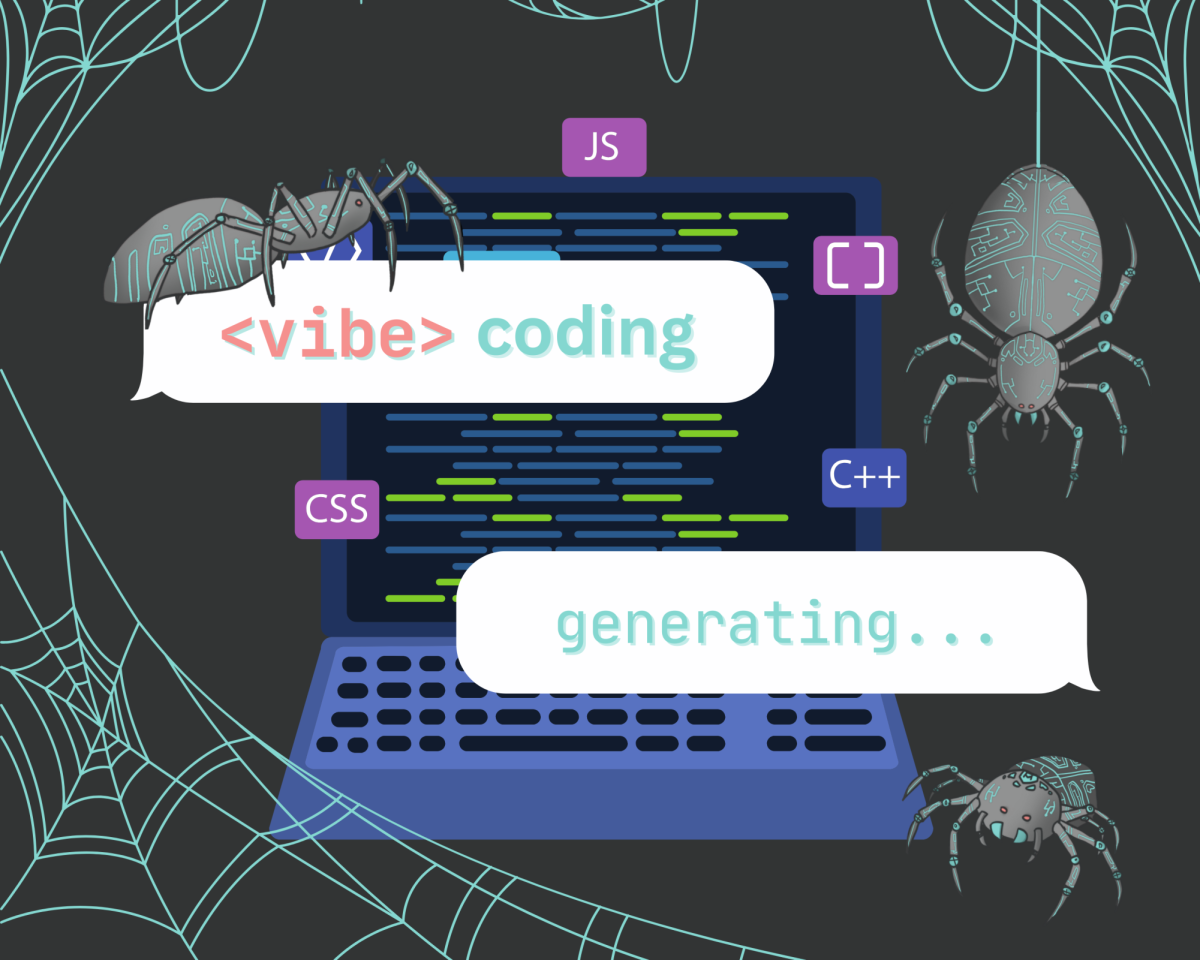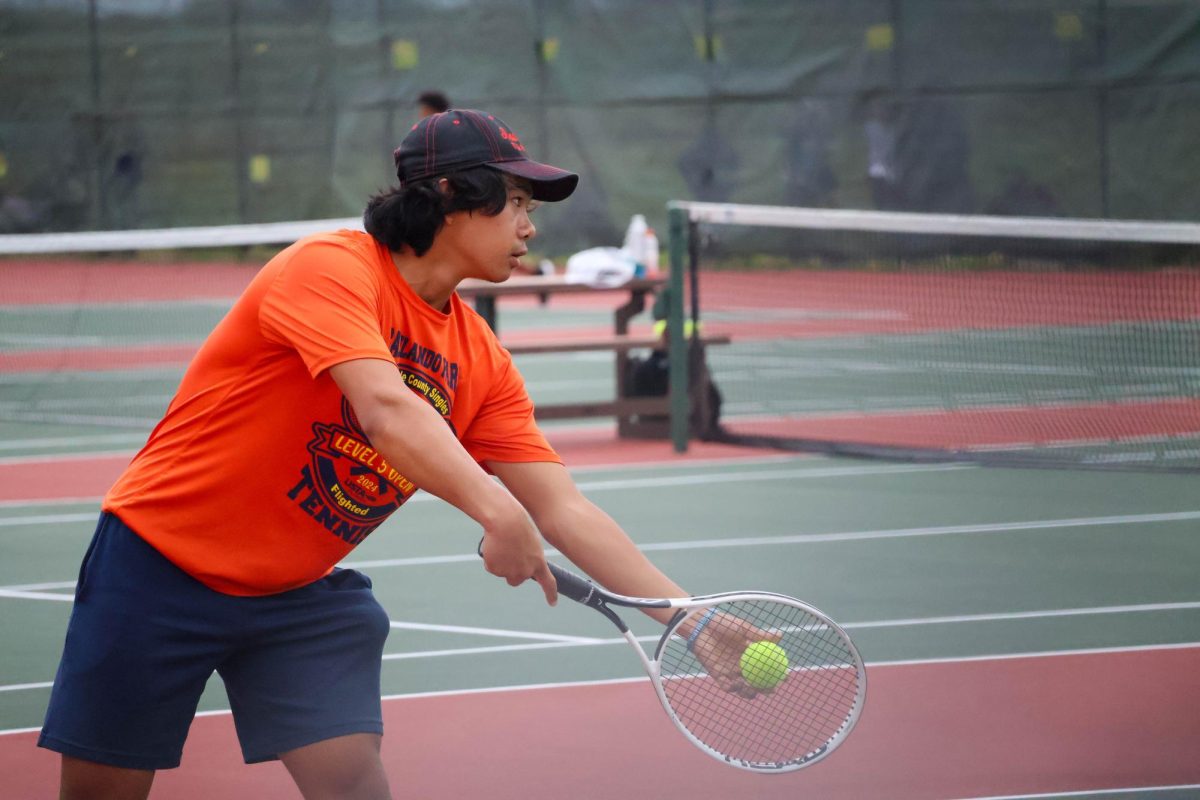Junior Eric Yang just lost another game. He watches as the ball he softly hit with his backhand is slowly caught in the net, hitting the floor moments later. Disappointed, he turns around, shakes his head, and picks up two bright yellow tennis balls. Yang hesitates, then smashes one of the balls with his racket, launching it into the fence on his side of the court. Despite the apparent frustration, the match is not over quite yet. In this Feb. 18 match versus Viera senior Joey Shine, Yang refuses to lose any more.
“I definitely try to feel my anger,” Yang said. “There are other players who like to keep quiet. I think when I keep myself accountable and yell at myself, it helps me lock in and fuel hitting harder, better and cleaner.”
Shine had tightened the first-to-eight-game match to 7-5, with Yang still leading. After serving during the last game, Yang would have to break Shine’s powerful serve to end the match. Yang would do just that. After going up 30-Love, Yang released a yell heard across Viera’s eight-court tennis complex. Later, with advantage, Yang watched as Shine’s forehand return fell out, and walked to the net to shake Shine’s hand. After winning the match, Yang picked up a ball and grappled again with sending it into the fence. Yang said that even though he won the match, he knows his performance could have been better.
“I was like, ‘Okay, high school season is my time to get my ranking back up,’” Yang said. “But then this happens, and it’s like, ‘What am I going to do?’ I’ll never let it happen again. Next time, I’ll stay focused.”
For high school tennis players like Yang who aim to play at the college level, each and every game is taken into consideration. Matches, sets, and games are cataloged and factored into myriad statistics and algorithms, culminating in a Universal Tennis Rating (UTR). Most tennis players maintain a UTR, which bestows players a number 1-16.50 to magnify their abilities on the court. Now, Yang is an 8.10, and every game he plays can increase or decrease that rating. Yang said that he knows that every game matters as his junior tennis season progresses and the reality of college recruitment looms larger.
“No matter who’s across the net, whether it’s a guy from Palm Bay or the best player in the state, I’m going to give it all my focus,” Yang said. “I’m going to keep my game going and keep reaching towards my goal.”
Yang’s tennis journey began at age four, when his mother brought him to attend tennis lessons with his older sister. Yang never looked back. After a few years of experience and improvement under his belt, Yang’s mother told him he could someday play for the very selective USA national tennis team.
“That was always my dream,” Yang said. “Even though it never happened, it was still my motivation.”
After consistent lessons for years, Yang’s training was halted by the COVID-19 pandemic in 2020. Then, he received a diagnosis which derailed his ability which hone his talents for an additional year.
“I got a tightness in my chest and shortness of breath while playing,” Yang said. “We saw a cardiologist because people thought it was my heart, and I got diagnosed with myocarditis.”
Yang said that the diagnosis was the beginning of a year-long journey to be cleared to play once again.
“I started feeling fine, but it came back again,” Yang said. “I went to see a cardiologist again, and they said my heart is perfectly fine. Another doctor said ‘Try an inhaler,’ and it started working really well. Then I realized I had asthma the entire time. I got misdiagnosed.”
Yang said that the two-year break was one of the most difficult periods in his tennis career so far.
“It was awful,” Yang said. “I saw all my friends and everybody else getting ahead. I felt like I was falling behind.”
Although he was sidelined from playing, Yang said his passion for the game never faltered. He said this passion and competitiveness was what allowed him to quickly catch up to his competition once he returned.
“I was insanely hungry to get better,” Yang said. “I was crazy about the sport. I would be in the back of class with everybody doing their assignments while I was watching tennis highlights to focus on film. At 1 a.m. in my room, I couldn’t go to sleep. Sometimes I couldn’t even start my homework because I was too focused on tennis. I was like, ‘I need to hit the courts right now, but I can’t.’”
After being cleared to play again in 2022 following his diagnosis with exercise-induced asthma, Yang joined the varsity tennis team in eighth grade, earning Rookie of the Year honors. In 2023 and 2024, he was named the team’s MVP, along with becoming a team captain and earning a bid on the All-Cape Coast Conference team in 2024. From March 2023 to March 2024, his UTR jumped 2.5 points from 5.00 to 7.50, whereas the average improvement in a year is 0.9 points according to Talk Tennis. Yang said his improvement following his hiatus is more than obvious today.
“There was one top kid in 12u, where I thought, ‘I’m never going to be that good,’” Yang said. “Last year I almost beat him. Never in 100 years did I think I would be able to get even two games off of him four years ago.”
Yang said he attributes his growth as a player to his breadth of training over the years since his break. He attended camps at IMG Academy, trained with former pro coaches, and practiced at the United States Tennis Association’s (USTA) National Campus. He competed in tournaments in China, which he said allowed him to learn about countering different playstyles.
“I try to go around the county, the state, and even the nation to get the best coaching I can from different academies and world class coaches,” Yang said. “I really try to keep myself accountable. I get up early and hit the gym. If I have a bad match, I write in a notebook what I did, what I need to focus on, and the possible solutions.”
Yang said his endurance and his backhand are the two things he aims to work on the most as he continues to train in an effort to round out his game. Much of his training, he said, has manifested in one exceptional ability.
“Ask anybody in Central Florida or the U.S. who knows me, and they’ll say ‘Eric Yang is the kid with the bomb forehand,’” Yang said.
At team practice, Yang often plays sets against sophomore Kirin Reiter. The two also play doubles together. Reiter said he agrees with Yang’s assessment of his biggest strength.
“I try to be more consistent, and Eric is more aggressive,” Reiter said. “He gets a lot of spin on the ball, and he goes for winners, which usually go in. His best shot is probably the forehand down the line. He’s really consistent, and it’s hard to return.”
Reiter said over the years, he has seen Yang become stronger in his strokes and gain the ability to respond to more styles of play. Yang’s Feb. 18 opponent, Shine, who once played doubles with Yang in a USTA junior league, said Yang’s greatest assets are clear.
“His strengths are his power, his vocality on the court, and how much energy he brings,” Shine said. “You don’t see a lot of tennis players getting loud on the court, but when you do, it brings a lot of energy. It helps his teammates and it helps him [clear his head of] the last point.”
Yang said as he progresses into a higher level of tennis, his power and energy become even more important to his game.
“That’s what college is all about,” Yang said. “Everybody’s very passionate and very loud with a big serve and forehand. That’s how American college tennis is played.”
Shine also said Yang has one glaring weakness which he intended to exploit during their match.
“The only thing he’s got to fix is the mental part,” Shine said. “That’s the downfall. It’s important you’re not focused on [the points you lose]. The mental side of tennis is really important because it’s just you out there. It’s really important that you win that mind game when you’re playing Eric, and get him in his own head.”
On the Tennis Recruiting Network, Yang is listed as a 2-star college recruit. Now in his junior tennis season, Yang has begun the recruitment process to play tennis at the NCAA level, both being contacted by higher institutions and contacting colleges himself.
“Only recently have I been getting some college attention,” Yang said. “They’re mainly Division III (DIII), but they’re all top DIII colleges. I’m in between top DIII or reserve in the Division I lineups. I’m going to see what’s best for my career educationally and athletically.”
According to Yang, his dream school is Vassar College, a liberal arts college in Poughkeepsie, New York. He said he was inspired to research small liberal arts colleges with strong tennis programs after witnessing a Satellite graduate commit to Swarthmore College to play tennis.
“I started looking at the liberal arts rankings just to see if there’s any schools I could play for,” Yang said. “And then just three spots down was Vassar. I looked at their tennis team, and was like ‘Wait, I could fit in there.’ So I emailed them. Their coach seemed interested and we started talking. I haven’t gotten the offer yet, but hopefully that’ll work out.”
Yang said he was additionally interested in Vassar due to its close proximity to New York City as well as its educational prowess.
“I could always get research and internships done in the city,” Yang said. “And then at a liberal arts school, there’s small classes, so I think I’ll get a very personalized education. I’m not just going to be another statistic in a large school.”
Yang said if he receives an offer from Vassar, much of his stress accumulated from juggling schoolwork and tennis would disappear.
“I would probably just breathe a huge sigh of relief,” Yang said. “I’m really stressed about college. If I know I can go to a school like Vassar, maybe I can let those couple of late assignments stay late.”
Yang said he wants to follow in the footsteps of his mom, a doctor, and sister, a pre-med student. He said he hopes to one day become an anesthesiologist. For this reason, he said his academic success is his primary focus.
“I always put my academics first, then tennis, even though sometimes the way I act doesn’t really correlate with that,” Yang said. “That’s what I try to make it.”
Looking forward to future matches against difficult opponents and high-pressure tournaments, Yang said he aims to maximize his success for the remainder of the high school season. He said he will always play with his whole focus centered on the match.
“Whenever I yell or drop my racket, I’ve only played better afterwards,” Yang said. “I’ve never given up on a match. I’ll always still try to give it my all.”
Yang maintains a Next College Student Athlete recruiting profile, which is accessible online for college coaches to analyze when scouting. On the profile’s personal statement, Yang said he sometimes dwells on the training he missed through the COVID-19 pandemic and his misdiagnosis with myocarditis.
“However, I am mature enough to know I should keep looking forward, not backward,” Yang’s profile says. “I am allowed to play my favorite sport with no health concerns anymore. There is nothing more I could ask for. If given the opportunity, I am confident that I will continue to grow and become the best student-athlete that I can be.”
This story was originally published on The Roar on April 9, 2025.

